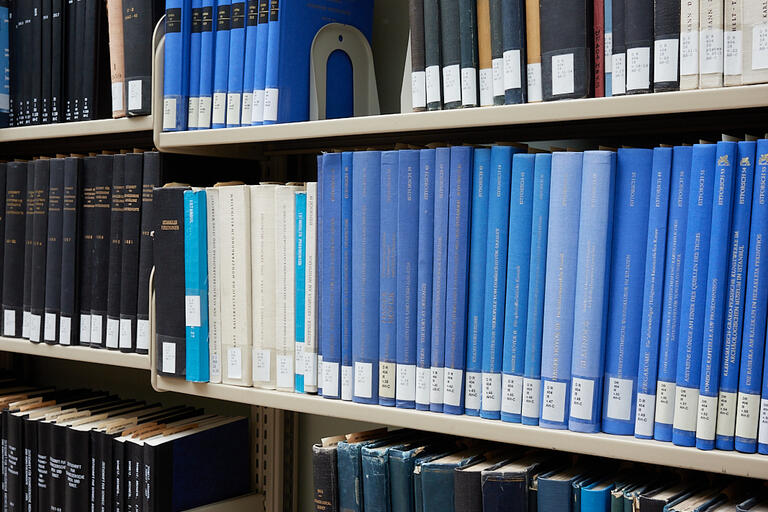The PhD program in Rhetoric trains students in the skills of the academic profession and provides a framework to develop the expertise necessary to produce a doctoral dissertation that meets the highest standards of research excellence. Our diverse faculty investigate and teach a wide range of topics and discourses, with various theoretical approaches and research methodologies. We have particular strengths in the following areas of concentration: Ancient Thought and Rhetoric; Continental Philosophy and Critical Theory; Legal, Social and Political Thought; Gender and Sexuality; Literature, Text and Narrative; Colonial, Post-Colonial and Global Studies; Image, Performance and Sound; Science, Technology and Media Studies. The Rhetoric PhD program is best suited for students who wish to approach a specific area of academic inquiry, research objects or archive while working critically within and between academic disciplines in order to pose questions that transcend disciplinary divisions.
Areas of Study
Ancient Thought and Rhetoric
Faculty: Ramona Naddaff, James Porter, Mario Telò, Anthony Long (affiliated)
Colonial, Post-colonial, and Global Studies
The Rhetoric Department supports research on colonialism, postcoloniality, empire, nationalism, transnationalism, cosmopolitanism and globalization from the early modern period to the present. Our faculty work on topics such as colonial encounters and scientific practice, colonial law and post-colonial legalities and politics, freedom, decolonization, revolution, the question of the human, transnational human rights, global art and world literature from the disciplinary perspectives of history, literary studies, visual studies, law, and politics. Their research focuses on non-western traditions including the Islamic world, the Ottoman empire, Sinophone East Asia, Southeast Asia and Africa.
Faculty: Pheng Cheah, Samera Esmeir, Fumi Okiji, Winnie Wong, Sharad Chari (affiliated), Cori Hayden (affiliated)
Continental Philosophy and Critical Theory
The Rhetoric Department has strengths in contemporary French and German thought and the history of modern European continental philosophy and is especially interested in the pertinence of these intellectual traditions to fundamental problems of the contemporary world. The faculty work in fields such as aesthetics, psychoanalysis, ethics, phenomenology and philosophy and literature. Major figures of special interest include Kant, Hegel, Marx, Heidegger, Arendt, Foucault, Derrida and Deleuze.
Faculty: Anthony Cascardi, Pheng Cheah, Marianne Constable, Samera Esmeir, Ramona Naddaff, Fumi Okiji, James Porter, Nasser Zakariya, Wendy Brown (affiliated), Judith Butler (affiliated), Hans Sluga (affiliated)
Gender and Sexuality
Our faculty work in diverse areas of study that include gender theory, transnational feminisms (French, Third World, US-of Color), feminist (de)aesthetics, feminist cultural politics, representations of race, gender and sexuality, and the history of sexuality (ancient and modern).
Faculty: Shannon Jackson, Pheng Cheah, Fumi Okiji, Mario Telò, Mel Y. Chen (affiliated).
Image, Performance and Sound
Several faculty members concentrate on the theoretical and cultural dimensions of images with a particular emphasis on the rhetoric of contemporary arts, media and digital technology. The fields we offer in this area include visual culture, film theory and criticism, film aesthetics, spectatorship, photography, and representations of race, gender and media.
Faculty: Shannon Jackson, Michael Mascuch, Fumi Okiji, Winnie Wong, Mary Anne Doane (affiliated), Anton Kaes (affiliated), Damon Young (affiliated).
Legal, Social and Political Thought
The Rhetoric Department supports research and teaching in interdisciplinary approaches to the law and in social and political thought from classical antiquity to contemporary times. Faculty integrate theories and methods from the humanities and the social sciences to approach such issues as justice, language, violence, revolution, personhood, evidence, technology, post-coloniality, nationalism, cosmopolitanism and human rights, in various legal traditions and their histories. They work in canonical political and social theory as well as critiquing it.
Faculty: David Bates, Pheng Cheah, Marianne Constable, Samera Esmeir, Wendy Brown (affiliated), Stefan-Ludwig Hoffman (affiliated)
Literature, Text and Narrative
With faculty working in literary and other discursive traditions that span the ancient, early modern, modern, and contemporary world, Rhetoric supports research that emphasizes textuality, interdisciplinary theoretical approaches, poetics, narratological, and historical and cultural studies. In particular, we support work in fields such as literature and philosophy, law and literature, post-colonial literatures, autobiography, and social and political dimensions of literature.
Faculty: Anthony Cascardi, Pheng Cheah, Marianne Constable, Michael Mascuch, Ramona Naddaff, Fumi Okiji, James Porter, Nasser Zakariya, Judith Butler (affiliated), Donna Jones (affiliated), Colleen Lye (affiliated).
Science, Technology and Media Studies
Several of our faculty members have research interests in different aspects of science and technology studies and media theory and practice. Their work and that of their students intersects with fields of study in history and philosophy of science and technology, anthropology of science, law and science, and new media, from the ancient world to the digital age.
Faculty: David Bates, Marianne Constable, Michael Mascuch, Winnie Wong, Nasser Zakariya, Cori Hayden (affiliated).

Program Timeline
An outline of the minimal requirements for completing the doctoral program in Rhetoric with a typical timeline follows.
Please view a more detailed version here: PhD Requirements and Timeline.
Year one
- Rhetoric 200, 205, and 2 other seminars, at least one of which is a Rhetoric seminar
Year two
- Year 1 Review (early in the 1st semester)
- Rhetoric 375 (Pedagogy, 2 units) by the first semester of the first GSI appointment
- Minimum of 4 seminars. By the end of Year 2, at least 3 elective seminars must be taken in Rhetoric
Year three
- Rhetoric 221 (Research Seminar, 2 units)
- Fulfillment of the foreign language requirement (ideally by the end of the 1st semester)
- Successfully pass the Qualifying Examinations (by the end of the 2nd semester) for advancement to candidacy
Years four—six
- Year four: File an approved dissertation prospectus (by the end of the 1st semester)
- Years five and six: Dissertation underway; annual Dissertation Candidacy Reviews; Prospectus and Dissertation Workshop (recommended)






